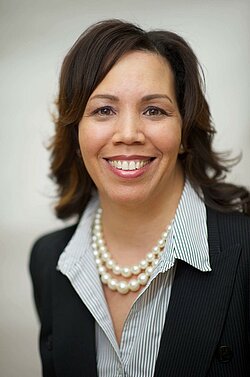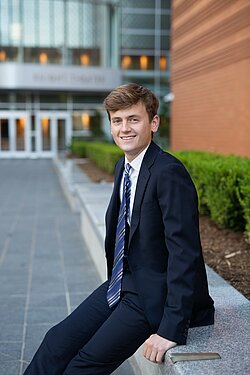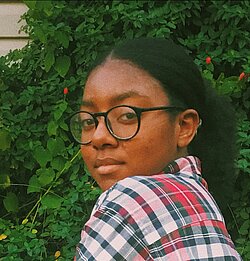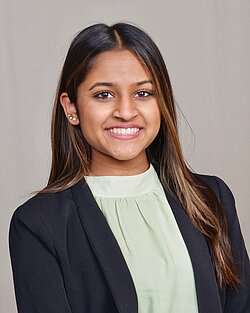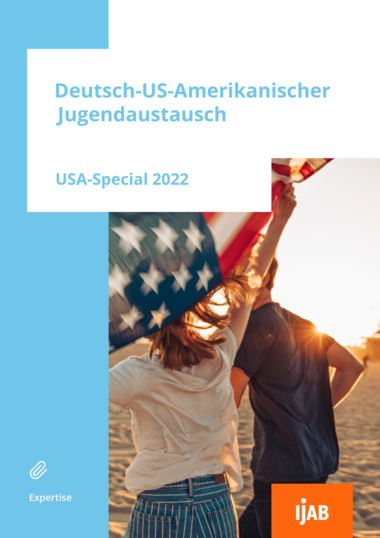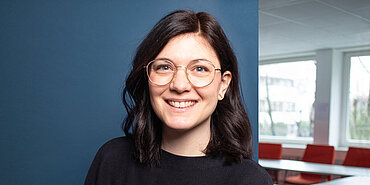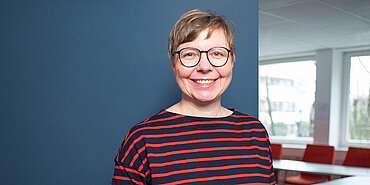In 2021 the German-American Sister Cities Youth Forum brought together young civic leaders from Germany and the US. What’s the idea of the project?
The main purpose of the project was to bring together representatives from local youth councils and youth leadership programs in five pairs of U.S.-German sister cities to have a transatlantic dialogue about issues confronting their local communities. Our hope was not only to build greater mutual understanding and collaboration between the youth, but also to help strengthen the relationship and ties between the sister cities so that future exchanges can take place among the next generation in these communities.
Who initiated this youth exchange?
This exchange is a direct result of a series of 2020 Transatlantic Town Halls with German and American mayors in the same sister cities in which the mayors discussed how their cities have adapted due to the pandemic and how their communities are rethinking plans for the future on issues like urban development and climate change, social equity and cohesion, and government engagement and communication with citizens. In each conversation, mayors specifically mentioned the need to engage more with youth in their communities on these issues, so the Youth Forum seemed like an obvious project to launch.
Young people face different challenges in their life depending on where they live and grow up. Yet, racial inequality, climate change and diversity seemed to be key issues keeping young people on both sides of the Atlantic on their toes. Why is it so valuable for young people to take a peek at civic life and engagement outside their own country?
Each individual community may have its own unique set of challenges, but issues like climate change and diversity, equity & inclusion are much bigger in scope. Learning how different communities and countries are attempting to tackle these issues (or not), understanding what the main challenges are, and recognizing the similarities in our societies allows youth to learn from, and support, one another. It also increases a mutual understanding that working on these issues is not just an American or German challenge, but something that is a responsibility for all of us regardless of where we live.
Terms such as racism, diversity and inclusion are often looked at and used differently in German and American contexts and discussing them can be challenging. Did this show in the youth forum and how did participants manage to create a safe space for open discussions around these topics?
Since words are used differently, we shared a glossary of terms related to diversity, equity, and inclusion that included words used in both the American and German contexts which helped participants communicate with one another with a greater understanding of their meaning. During our conversations, we wanted everyone to feel that they had a safe space to talk about these topics and to share information openly because we recognized that some of the topics are very sensitive and may be difficult for some to talk about. And given the community in this project represented youth from different backgrounds and walks of life, it was critical that everyone respect each other’s opinions and perspectives. Therefore, the youth advisory council for the project early on created a document called “Guiding Principles of Communication” that outlined standards for all the discussions. This included the concept of using a “safe word” to calm things down if a conversation became tense or someone felt attacked or insulted. There is only one rule — when someone uses the safe word, you stop. No more yelling, no more talking, nothing. You back down, you back away. No further discussion, disagreement or argument around that topic will occur until everyone has had a chance to cool off. I was impressed that the youth wanted to have guidelines like this to ensure the safe space. In the end, however, all of our conversations were free of conflict, very open and transparent, and incredibly respectful.
Looking at young civic engagement, what would you say appeared to be major differences with regards to the work of young civic leaders in Germany and the US?
To be honest, rather than see major differences regarding youth civic engagement, I think the exchange in fact highlighted how similar youth commitment to addressing issues in their communities is on both sides of the Atlantic. In all ten cities, youth are passionate about change, informing themselves about issues and pressing decision-makers in their schools and in their local governments to implement new policies. Perhaps one difference between Germany and the U.S. is that many of the American youth organizations are independent, nonprofit organizations, whereas the German organizations are formally affiliated with, and funded by, local government agencies. In some cases, the formal affiliation means that the youth have a stronger voice in policymaking. During the exchange, youth expressed a clear desire for their views to be heard, so participants liked the concept of official “youth councils” or “Jugendräte" that allow youth greater input into the decision-making for their communities.
The Sister Cities Youth Forum took place online. What opportunities lie in going virtual for exchanges like these?
Prior to this project, none of the youth organizations in the sister cities had had any contact with each other. The virtual exchange was a great way to begin conversations between the youth in both countries, to form relationships, and to start building mutual understanding on issues they face in their communities. Ideally, we hope that the virtual exchange creates a foundation on which the youth organizations in the sister cities can build a sustainable, long-term relationship for further exchange and dialogue on these issues (and others) in the future, as well as in-person exchanges in their respective countries once the Covid-19 pandemic has been overcome.
One of the project’s goals was to strengthen local youth engagement. One could argue that there are other ways to achieve this than transatlantic exchanges. What makes international exchanges such a unique civic learning opportunity for all parties involved?
As someone who personally took part in exchange programs to Germany, I believe they are extremely valuable because one is forced to step out of the daily life you consider to be normal and to look at issues from a different perspective. Both similarities and differences can lead to greater understanding or to finding best practices that can lead to better ideas and policies which improve the quality of life in communities. Overall, exchanges broaden people’s horizons and openness to considering different ways of approaching issues while simultaneously trying to solve similar challenges or take advantage of common opportunities.
Looking at this from a municipal perspective, transatlantic exchanges can seem challenging and overwhelming, especially if built from the ground up. You are one of the initiators of the German-American Sister Cities Youth Forum. Do you have any advice for municipalities who wish to go forward with their idea of a German-American youth exchange?
My recommendation is to start small and to take advantage of virtual exchanges to start building a relationship before expanding to a larger in-person exchange that requires greater planning and funding to implement. And in terms of finding a partner in the other country for the exchange, there are 100 sister city partnerships between U.S. and German cities that can serve as a great foundation. From personal experience, each of the youth organizations approached for this project indicated that this type of exchange was on their “to do” list and was of great interest; all that was needed was someone to pick up the phone or to send an e-mail suggesting the idea. I’m also happy of course to provide more advice to anyone who calls me too!
Make a wish: What do you hope to see in the future in terms of German-American youth exchange?
Recent elections in both the United States and Germany showed that the next generation is engaged, committed, and motivated to take action on serious issues confronting our local communities and the world. My wish would be that our respective governments would invest more resources and dedicate greater funding to exchange opportunities that bring youth together to share ideas and learn from one another. Every one of the 100 sister city partnerships between Germany and the United States should have an exchange and the infrastructure to support them. Our governments talk about enhanced transatlantic cooperation, so as one of the participants in our exchange said, “Be the change you want to be.”



